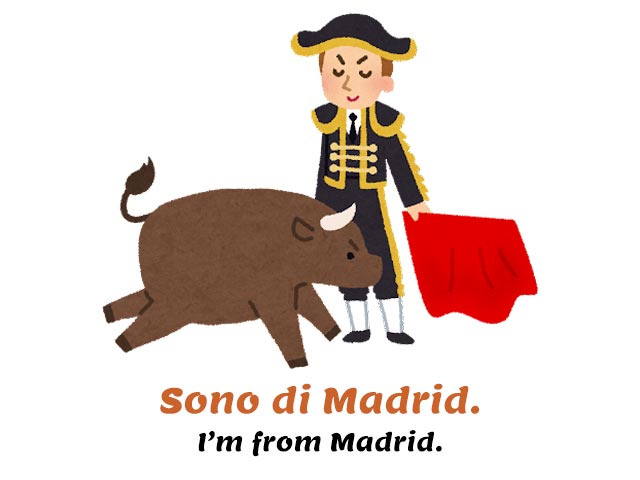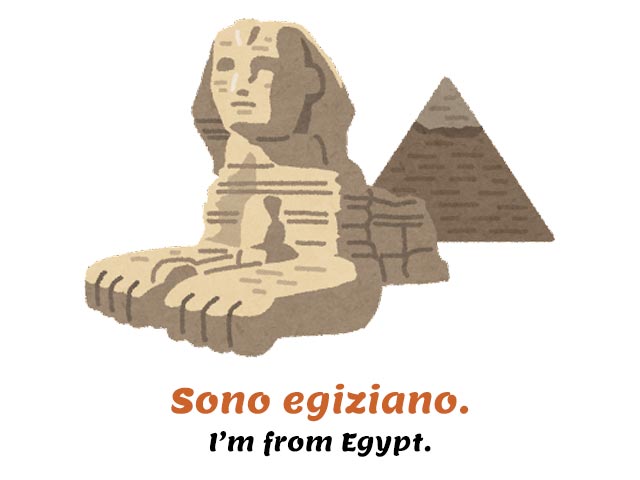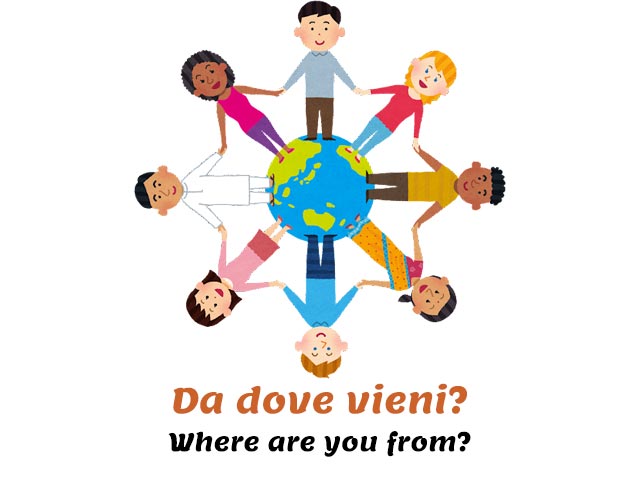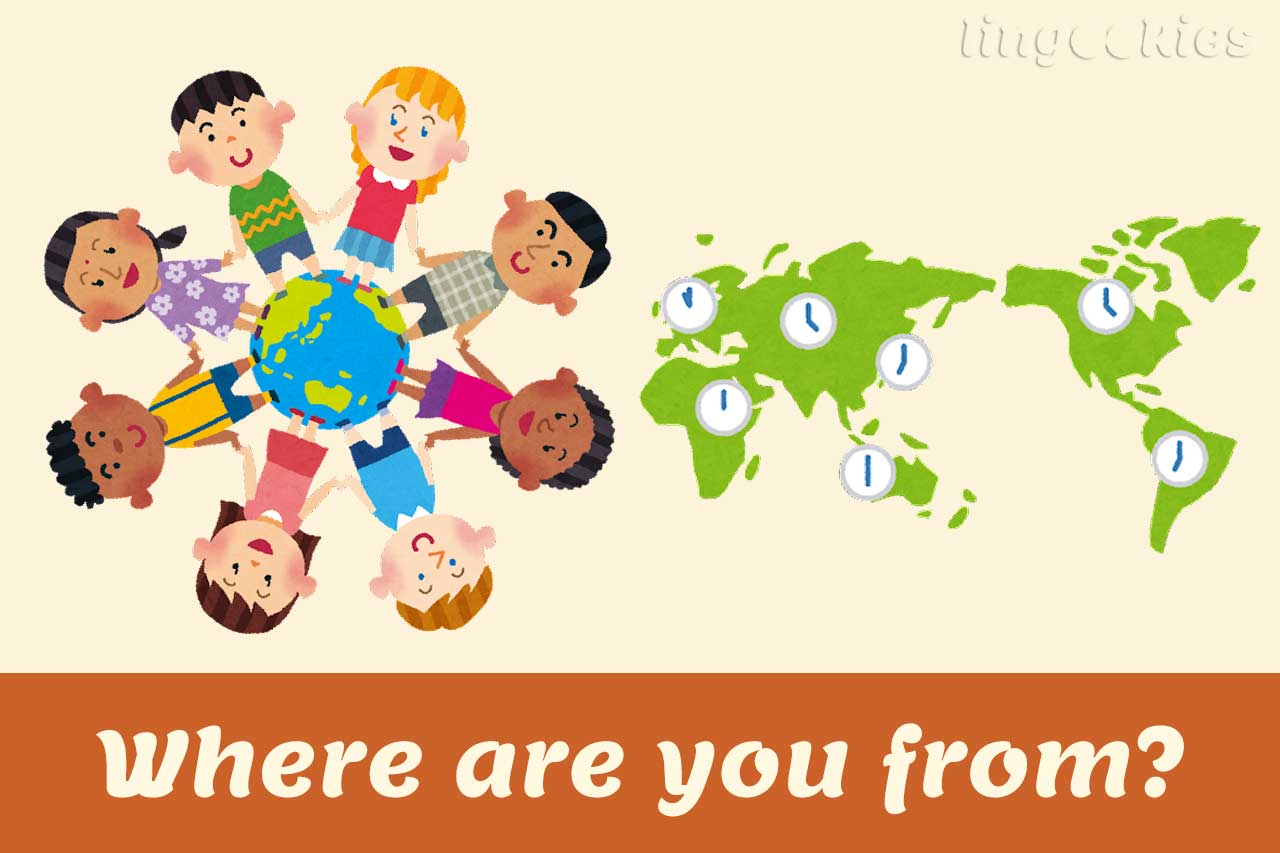Di dove sei?
| Words you should know | Di (of) + dove (where) + essere (to be |
| When to use this | With 1 person you’re familiar with |
| When NOT to use this | With strangers and groups |
Di dove sei?
Where are you from? (singular, informal)
For example, you can say…
Di dove sei? – Sono giapponese. E tu?
Where are you from? – I’m Japanese. And you?
Di dove sei? – Sono di Venezia. Piacere di conoscerti!
Where are you from? – I’m from Venice. Nice to meet you!

If you want to say you are from a particular country, use the nationality:
sono… (I am)
- americano / americana (American, male / female)
- inglese (British)
- francese (French)
- tedesco / tedesca (German, male / female)
- spagnolo / spagnola (Spanish, male / female)
- cinese (Chinese)
- russo / russa (Russian, male / female)
- egiziano / egiziana (Egyptian, male / female)
- etc.
If you want to say you are from a particular city, use the preposition di + the name of the city itself in Italian:
sono… (I am)
- di Roma (from Rome)
- di New York (from New York)
- di Londra (from London)
- di Parigi (from Paris)
- di Madrid (from Madrid)
- di Mosca (from Moscow)
- etc.

Di dove siete?
| When to use this | With a group of people |
| When NOT to use this | With 1 person at a time |
In Italian, unlike English, there are two kinds of “you”. There is a singular “you” and then there is a plural “you”. If you’re speaking to a group, you’ll need to conjugate any verb or pronoun accordingly.
Di dove siete?
Where are you from? (plural)
For example, you can say…
Di dove siete, ragazzi? – Siamo di Berlino.
Where are you guys from? – We are from Berlin.
Di dove siete? – Siamo egiziani.
Where are you from? – We are from Egypt.

Di dov’è?
| When to use this | With 1 person you’re NOT familiar with |
| When NOT to use this | With friends, family and groups |
When speaking formally, Italians address each other with the subject “she”, lei. Use Lei in the written form if you want to be very polite.
Di dov’è?
Where are you from? (formal)
More commonly, however, you will find these expressions instead:
Lei di dov’è?
Where are you from? (formal)
Di dov’è lei?
Where are you from? (formal)
This is because di dov’è is the contracted form of di dove è, which can also be translated as where is it/he/she from. To avoid any confusion, the formal subject pronoun Lei is added to the sentence.
Da dove vieni?
The verb venire literally means to come and it’s another translation for where are you from in Italian, literally translating to “where do you come from?”. It’s used in the same way as the other expressions we’ve already seen.
Da dove vieni?
Where are you from? (informal, singular)

Da dove venite?
Where are you from? (plural)
Lei da dove viene?
Where are you from? (formal)
What’s different is the answer you’ll give.
If you want to say that you are from a particular country or city, you have to use the preposition da + the name of the country or city itself.
Beware! When you introduce a country by its name in Italian, you must always add its definite article to the sentence. You don’t need to add an article when introducing a city.
vengo… (I come)
- dall’America (from America)
- dall’Inghilterra (from England)
- dalla Francia (from France)
- dalla Germania (from Germany)
- dalla Spagna (from Spain)
- dalla Cina (from China)
- dalla Russia (from Russia)
- dall’Egitto (from Egypt)
- da Roma (from Rome)
- da New York (from New York)
- da Parigi (from Paris)
- da Pechino (from Beijing)
- etc.
More free Italian resources
You might want to keep learning Italian online with these free Italian resources:
❤️ If you liked this lesson on how to say where are you from in Italian, share it with your friends!


